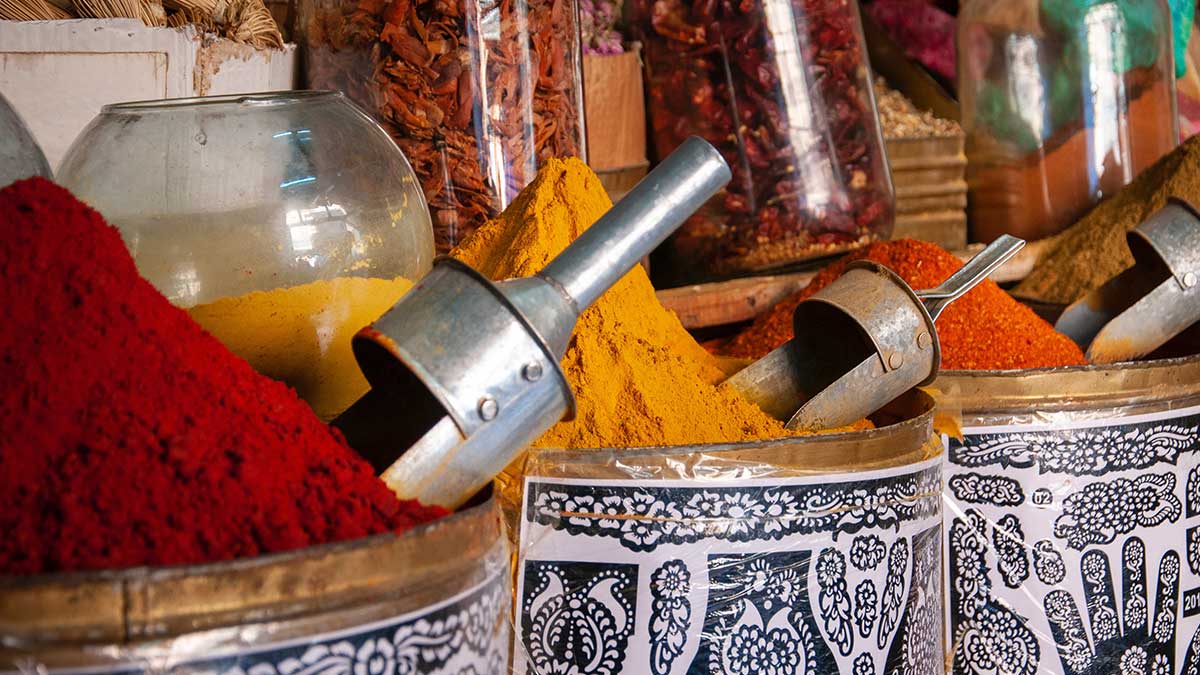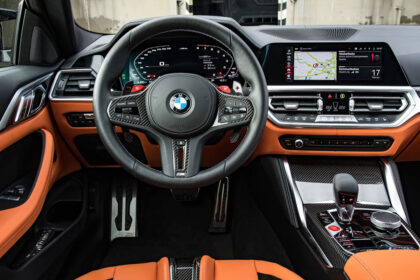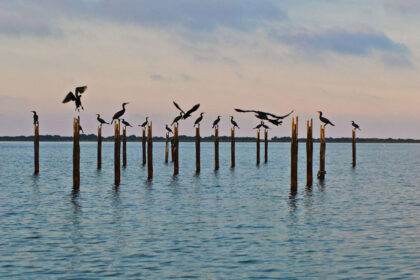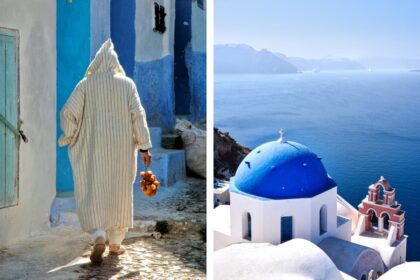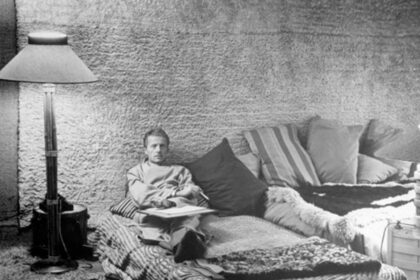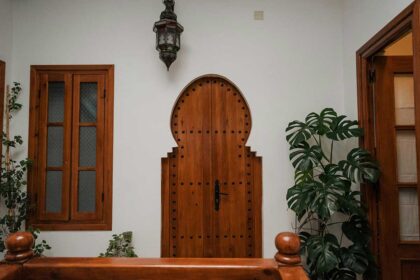Morocco provides travelers with an adventurous and distinct culturally immersing experience. The country has breathtaking landscapes, such as red dirt roads twisting through its desert terrain and lively cities brimming with elaborately handcrafted items and freshly picked spices on every street.
Nonetheless, like is the case with any other travel destination, there are some concerns that visitors to Morocco should be aware of. These include the possibility of being duped by locals, or Scams in Morocco.
In this article, we will discuss some of the most frequent Scams in Morocco and how to prevent them. Keep these suggestions in mind before traveling to Morocco, and you’ll have a safe and happy trip!
1- Henna Women
In Marrakech’s main plaza, Jemaa El-Fna, you’ll encounter, what some may call “annoying”, women who will try to put their Henna ink syringe on your hand without your realizing it and then sweetly offer to make up for their error by giving you a full henna hand tattoo. The outcome and quality may vary, but in general, it will be of poor quality.
When they’re finished, they’ll ask you for 100MAD (10 euros) for the few minutes it took them to do the assignment. And, no, they don’t care if you liked the outcome or not.
Another reason to avoid Henna tattoos on Moroccan streets is that most of these con artists would use black Henna instead of the real stuff. It’s an ink that turns your skin black instead of brown, and it’s extremely harmful since it includes the hair color paraphenylenediamine (PPD). Although it seems to be a genuine tattoo when put to your skin, allergic responses to PPD can cause blisters, open sores, and scars.
Identifying whether the Moroccan henna ladies are using traditional or black henna is simple. Henna paste is often dark green, khaki, or greenish-brown in hue. It is never dark. Stop a henna practitioner from putting a heavy black paste on your palm right away.
Avoid this type of scams in Morocco by being wary of covered ladies who approach you on Jemaa El-Fna. Or, if you loved the tattoo, simply offer to pay in money (no more than 10MAD is a decent fee) or simply walk away. Remember that you are not required to pay for a service that you did not seek in the first place.
2- The human Google Maps
When traveling in Morocco, particularly in bigger cities, you may come across natives who insist on giving you instructions. Once they’ve directed you to your goal (whether you agree to allow them or not), they may demand money that wasn’t agreed upon. The sum of money can go up to 50MAD (5 euros)!
This fraud is common in Marrakesh or Fes, one of Morocco’s most famous tourist sites. There is a site named The Medina in both cities. It is a major market, a UNESCO World Heritage site, and the cities’ historic core. The Medina can be difficult to navigate since Google Maps does not operate effectively within its walls and there are few street signs.
When scammers notice someone who appears to be a tourist, they will typically approach them and ask if they want assistance in finding something. Even if the tourist does not interact or solicit help, they may stroll with them until they arrive at their destination and then claim that they assisted in guiding them there.
Avoid this one by not going with someone who voluntarily asks whether they can point you in the right direction as they are more likely to scam you. Also, always discuss the rate of remuneration before strolling with someone who resides in the region to show you around. If you become lost, ask the owner of a shop for assistance. Shop owners are unable to leave their stores, reducing the possibility of their defrauding you.
3- Taxi Drivers/ Scammers
Taxi drivers, like anywhere else in the world, are the most aggressive fraudsters you should be careful of, especially those you encounter at the airport. It is against the law in Morocco not to use the taximeter, yet most taxi drivers will try to negotiate a price with you and will refuse to use the meter. You should not pay more than 70MAD during the day and 150MAD at night.
Taxi drivers will constantly attempt to push you and demand extra money, arguing that the trip is too far or that this is the standard rate. They may even transport you somewhere other than your intended location in order to make your destination appear even further away as this is one of the common Scams in Morocco.
The following fraud is related to not utilizing the meter. So, let’s assume you agreed on a price (or argued about it for 10 minutes) and they turned on the meter. When you attempt to pay and don’t have precise change and use a larger note, they refuse to give you the right change!
They try to give you less change than you are owed in order to come closer to the amount they initially desired. How can this be avoided? When taking a petite or grand cab, always have little coins and smaller notes on hand.
These scams can be sometimes avoid. Just remember, when in taxis, always be cautious, don’t be taken in by this deception, and make informed decisions.
4- Fake Fossils and Minerals
Morocco is well-known for selling genuine fossils and minerals. However, many of the items offered in the souks are counterfeit. Yes, that is another one of the Scams in Morocco. Tourists will sometimes pay a hefty price for something that isn’t real.
It’s normal to find dinosaur jaws and trilobites for sale in ancient Medina souks, although none of them are millions of years old. They are mainly false concrete sculptures meant to seem like the genuine thing.
Morocco is also a major source of false or augmented geodes and quartz crystals. The dealers may have genuine geodes containing quartz crystals, but they will add purple dye to the inside to mimic the appearance of amethysts.
If you pay the requested amount, you will be defrauded at a greatly inflated price, and it is also quite doubtful that you will be able to resell the mineral or fossil for a greater price after you return home.
Before you buy a genuine fossil or gemstone, be sure you know how to recognize it. Do your homework before acquiring a gemstone or fossil to determine its market worth. This involves doing research online, questioning locals, and comparing the prices of identical things in other stores.
Here’s how to spot an authentic fossil from a fake one:
- If you observe several identical-looking fossils on a stand, they are most likely mass-produced concrete casts. They’re all false since they all look the same.
- Rare fossils will never be inexpensive. If it is a fossil, it should be quite expensive.
- Dinosaur teeth are very never discovered linked to a jaw, thus discovering one in the souk is a dead giveaway that it’s a forgery.
- Perfect-looking fossils are most likely forgeries. The majority of the real fossils are fractured and have many missing pieces.
5- Pricey Camel Rides
This is one of the Scams in Morocco that is especially prevalent in regions such as Merzouga, Marrakech, and seaside cities where camel trips are popular. People will give you a ride on their animal and either take you further than planned and then overcharge you or just charge you an inflated amount from the start.
Another variation of the scam occurs when the camel owner transports you far from your starting place and wants a double payment merely to return you to the hamlet from which you started. This may be a stressful and frightening experience.
Do not worry, there are methods to ride camels in Morocco without putting yourself in danger. If camel riders ever try to leave you in the middle of nowhere, threaten to contact the cops. Mentioning the cops will immediately shift their attitude toward you.
The easiest way to prevent this classic trick is to only ride a horse or camel from a reputable organization. These companies may be found by booking your camel or horse excursion online ahead of time.
6- Photoshoot Sessions
In huge squares of popular tourist destinations, such as Jamaa El-Fna in Marrakech, you may see individuals roaming about with animals like snakes or monkeys. When you go by, these con artists will lay the animal on you and encourage you to take a picture with it.
They may even steal your camera from your grasp in order to photograph you with the animal. They then try to persuade you to give them a big quantity of money for the photograph you took with their animals.
If you offer less than what they anticipate (typically around 100 MAD or 10 euros), they will toss the money back at you and start yelling at you to pay more, which why this has been one of the most notorious Scams in Morocco.
The one and only method to avoid falling into this trap is to avoid persons who insist on you photographing their animals. If you admire a photograph, pay only what you believe to be a reasonable price and then walk away.
7- Fake meal prices
Restaurants may scam you in a variety of ways, and this specific scam can cost you a lot of money. One method is that when you enter the restaurant, you are given the meal menu, which is inexpensive and attractive.
When it comes time to pay the bill, you will be given another menu with excessive charges, and your pill may contain items that you did not even want! In certain restaurants, they will tell you that water and bread are complimentary and will be served to you, but in reality, you will be charged for them.
If you request an explanation, they will send you a separate menu with significantly higher costs. It’s pointless to argue with them since you’ll never see the initial menu with lower pricing again.
If you are ever a victim of this one of the Scams in Morocco, simply pay what you believe to be the initial payment and walk away. The authorities are aware of the eateries who operate this sort of scam, therefore they will never file a case against you if you simply walk away without paying their “tourist” fees.
Scams in Morocco: Emergency Phone Numbers
If you ever find yourself in a questionable position in Morocco and need to contact the police, dial 19 in major cities. If you are calling from outside the city, dial 177. The Royal Gendarmerie will be contacted as a result of this.
Other numbers to remember when traveling in Morocco are 150 for an ambulance and 15 for the fire department.
We sure hope this list of frequent Scams in Morocco helps you have a more enjoyable and safe journey across the country.
If you believe some Scams in Morocco are missing or should be included in this list, please contact us or share your thoughts in the comments section below.







